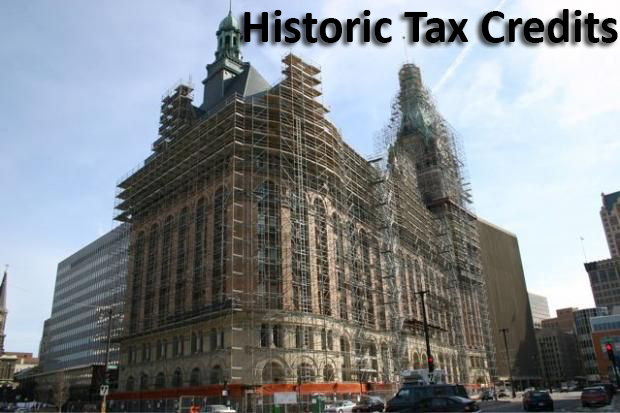 Since 1989, the State of Wisconsin has offered a 5% Historic Tax Credit (HTC) of the qualified rehabilitated expenditures on building projects and renovations across the state. On January 1, 2014, the Wisconsin Legislature increased the credit to a 20% HTC. Wisconsin is one of 34 states that offer Historic Tax Credits, and is one of 16 states that have no aggregate cap on credits. Five additional states have annual aggregate caps that exceed Wisconsin’s recent annual historic tax credit awards.
Since 1989, the State of Wisconsin has offered a 5% Historic Tax Credit (HTC) of the qualified rehabilitated expenditures on building projects and renovations across the state. On January 1, 2014, the Wisconsin Legislature increased the credit to a 20% HTC. Wisconsin is one of 34 states that offer Historic Tax Credits, and is one of 16 states that have no aggregate cap on credits. Five additional states have annual aggregate caps that exceed Wisconsin’s recent annual historic tax credit awards.
While details to each state’s program vary, ten states match Wisconsin’s 20% HTC allowance and 20 states exceed Wisconsin with a higher HTC, most commonly in the form of a 25% credit. Prior to the 2014 tax credit program expansion, Wisconsin’s HTC program averaged 11 projects a year. Since its expansion, 31 projects have been approved for a total of $35,071,257 in HTC.
In the current proposed budget, the Governor recommends limiting annual awards under the historic rehabilitation tax credit to $10 million. The Governor also recommends that credits be awarded on a competitive basis with several criteria, including job creation potential, to determine which applicants receive the credit. The Governor further recommends requiring that credits be repaid in proportion to any shortfall in job creation relative to the amounts claimed in the credit application if actual job creation is deficient within the first five years after receiving the credit. In addition, the Governor recommends that if a recipient is required to repay the federal credit, the state supplement to the credit must also be repaid. These changes begin with the 2017 tax year. (Note: the Governor recommended the same changes to the program in his last budget proposal.)
A coalition of interested groups, parties and organizations have assembled to form a strong advocacy front. Meeting on a weekly basis, the partners exchange information on their meetings with legislators, talking points, and coordination of individuals to give testimony at joint finance committee listening sessions. In the next few days, members of the coalition will be releasing updated HTC numbers that show its usage, job creation numbers and economic impact throughout the State. This will be a powerful and hopefully persuasive tool for lobbying efforts. If you have an interest in being part of the testimony process as an individual who uses the credits successfully, please let us know.